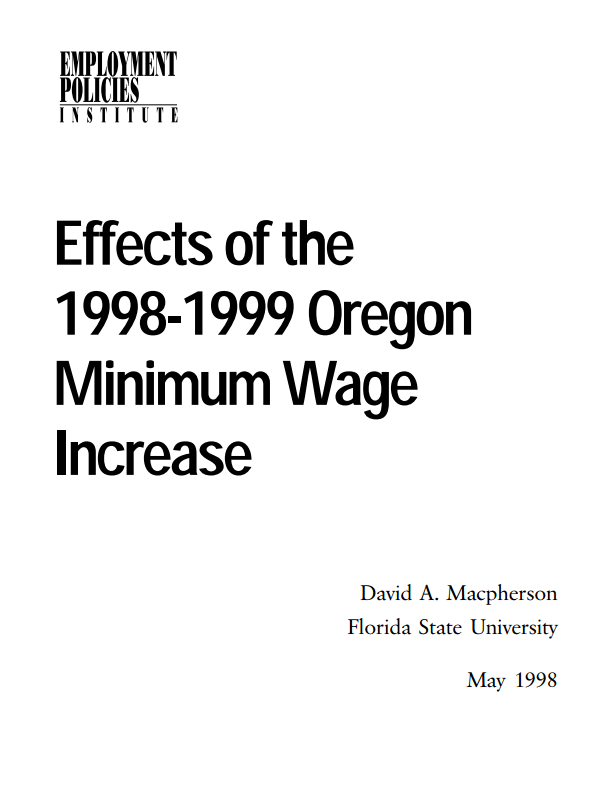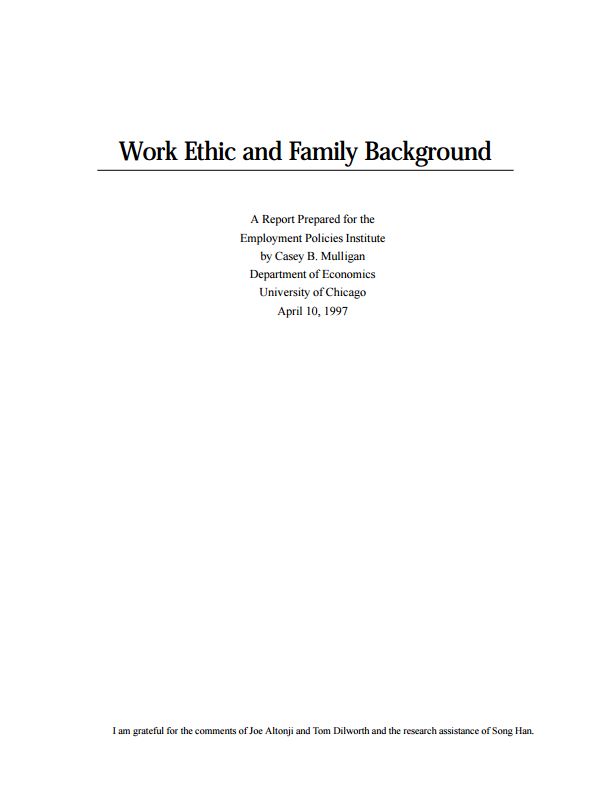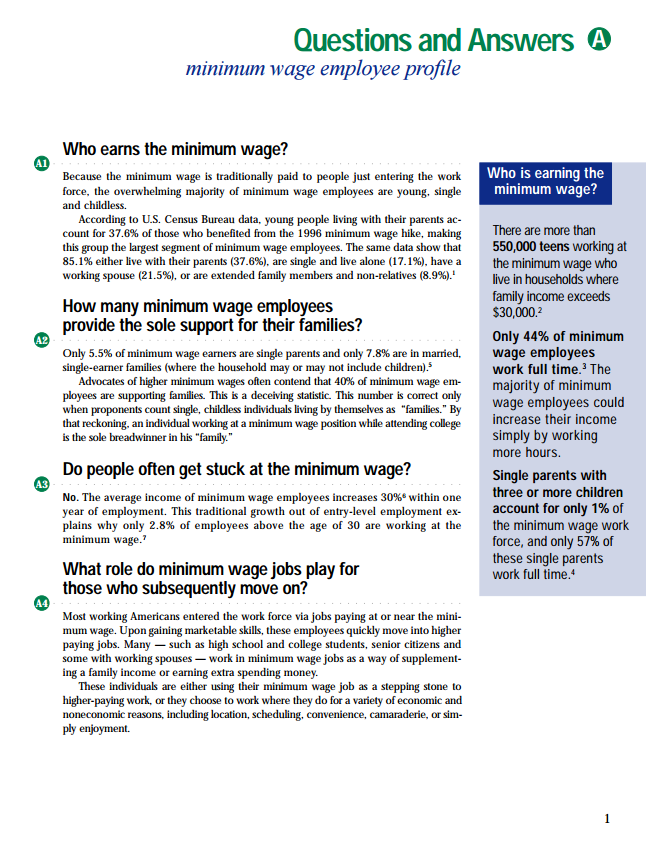Effects of the 1998-1999 Oregon Minimum Wage Increase
May 1998
Based upon an analysis of Labor Department data, Dr. David Macpherson finds the 1998-1999 Oregon minimum wage hike from $5.50 to $6.50 will cause more than 5,400 workers to lose job opportunities. As a consequence, Oregon workers will lose approximately $50 million in annual income. At the same time, minimum wage employers will see their labor costs rise by $162 million per year in order…






